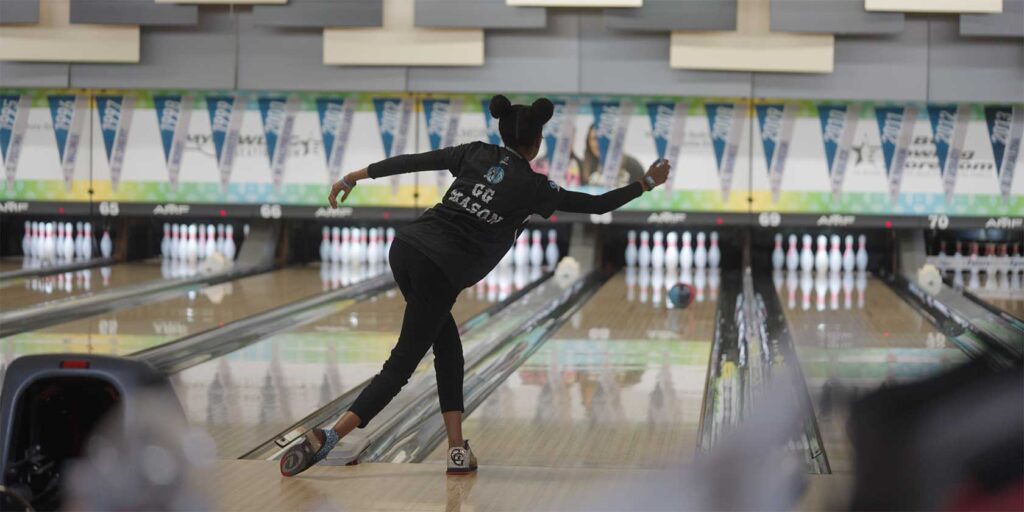
The Rhode Island International Film Festival, one of the largest film festivals in New England, returns this month, screening 300 films over the course of seven days. The festival has been running for 27 years and highlights independent films from a diverse lineup of filmmakers and genres.
During the festival, director Najah Owens will present the world premiere of “Last Place Champ,” a documentary about Gazmine Mason, known as “GG,” a Black female professional bowler navigating the industry. Owens went to North Carolina A&T State University on a bowling scholarship and is intimately familiar with the misconceptions about the sport and the athletes that play it. Women are already at a disadvantage in the male dominated sport, but women of color are even more rare.
“I really believe it’s because we don’t have the access that the other ladies have,” says Owens. “They have sponsorships. They have places they can go and train. We don’t have that … And that’s what GG is trying to help solve.”
Mason is from Rhode Island and many scenes from the film were shot there. Owens felt it was the perfect place to debut the film. In future projects she plans to continue her work telling the stories of Black female athletes.
Further afield in the U.S., Mark D. Bonner filmed “Bamber Bridge” in Louisiana. The short film tells the story of an outbreak of racial violence involving American soldiers stationed in Bamber Bridge, Lancashire in England during the World War II. The conflict began with U.S. military commanders attempting to enforce Jim Crow segregation laws that did not exist in England on the military units there. After escalation, an armed conflict ensued.
“I think it’s very relevant to the current moment, because I think it shows that the growth and development of that mindset back then — parts of present-day now are kind of like that,” says Bonner. The filmmaker experienced a startling example of this when the sets were burned to the ground near the end of production. Bonner believes this to be an act of racially motivated violence. As a result, he was unable to re-film scenes he had planned to adjust. Screening “Bamber Bridge” at the festival will be an act of defiance against those who didn’t want it made.
The RIIFF runs August 7–13. During the week-long festival, attendees will see full-length and short films, world premieres, panel discussions with film artists, and more.
Despite his challenges during the process, Bonner hopes his film and the others at the festival leave a positive feeling. “I hope the audiences take away that whatever you’re going through — because each character went through something in each film — you’re not alone in your journey,” he says. “And love can conquer hate.”










